What I Learned from Picture This
While working on my AI-themed illustrations this week, I also started reading Picture This—a book recommended by my academic advisor, ChatGPT-sensei. It’s exactly what I needed.
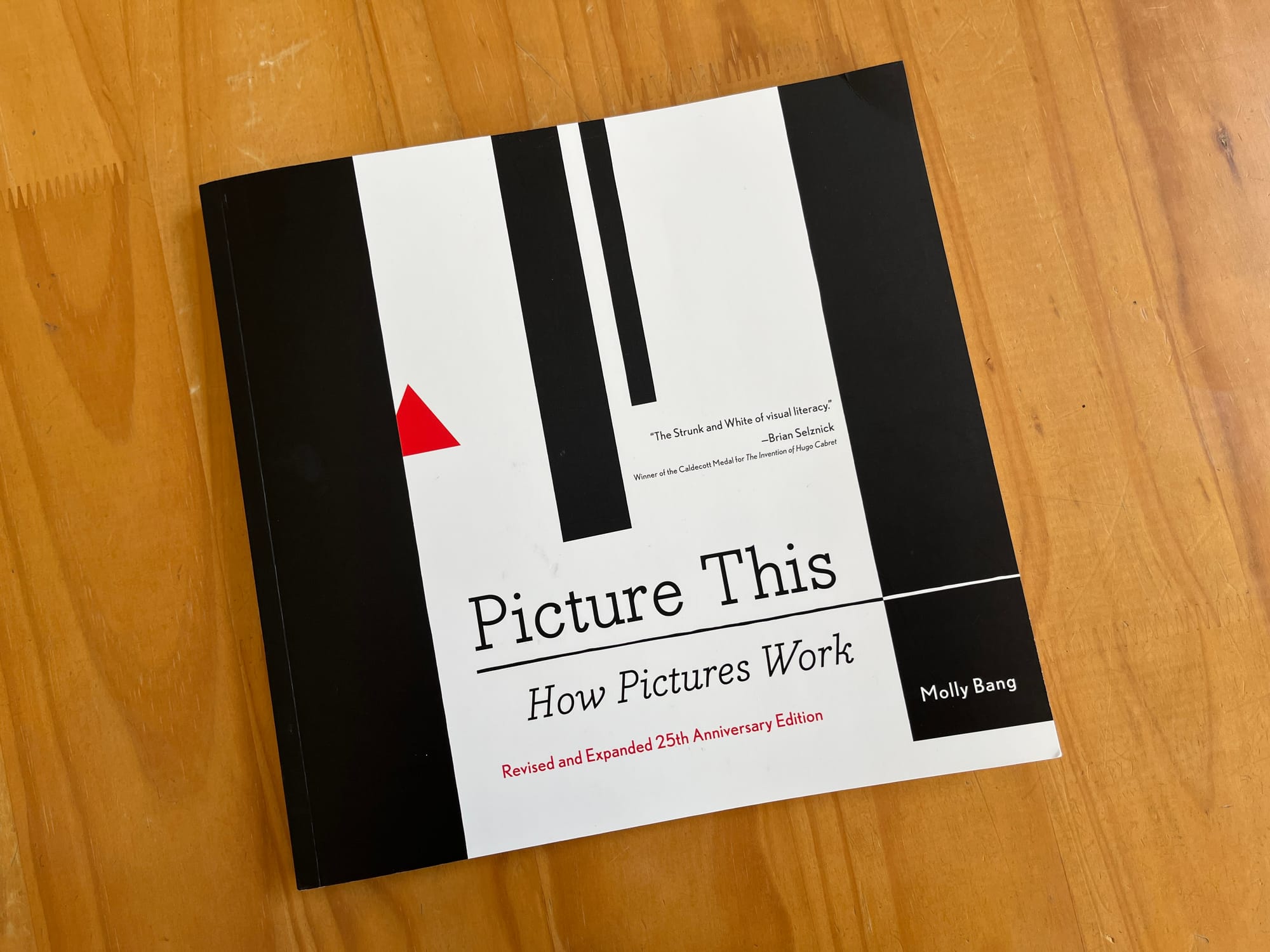
This week, while working on my AI-themed illustration, I started reading Picture This—a book recommended by my academic advisor, ChatGPT-sensei. And wow, it’s been so helpful!
The author, Molly Bang, is an illustrator and picture book author with a solid career. But one day, she realized something important: while she was good at drawing individual objects, she didn’t know how to compose multiple elements in a way that conveyed specific emotions. That realization led her to dive deep into art books, visual psychology, and countless artist studies—and eventually, she wrote this book to share what she learned.
There are several reasons why Picture This really resonated with me, but the biggest is this: it’s helping me understand how to convey strong emotion using fewer elements. Since last month, I’ve been studying composition, but only recently did I realize that the most memorable illustrations are deliberately and strategically constructed to captivate the viewer. Up until now, I’ve been working with intuition and imitation, but this book feels like a proper guide—like a mentor explaining the “why” behind everything.
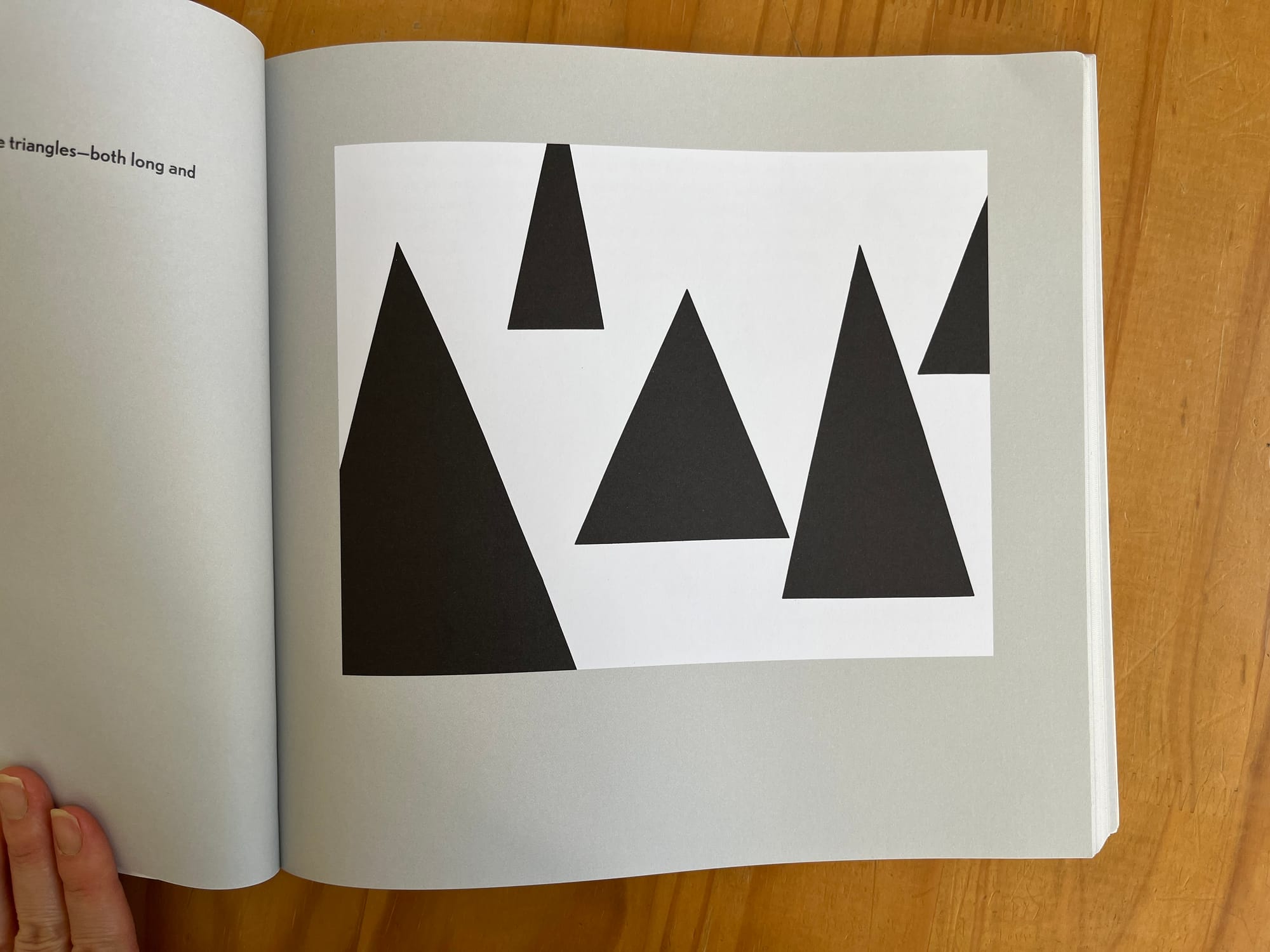
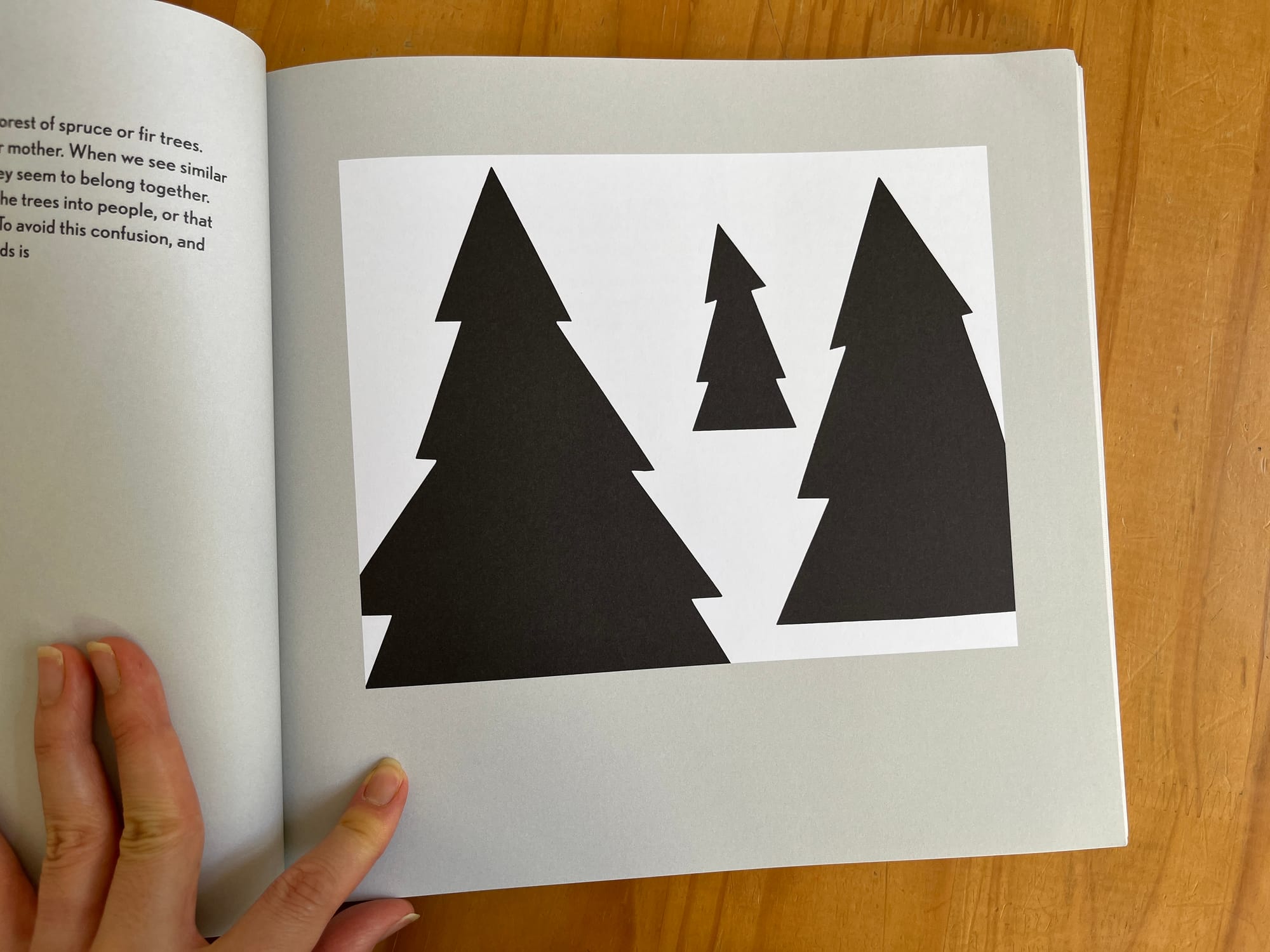
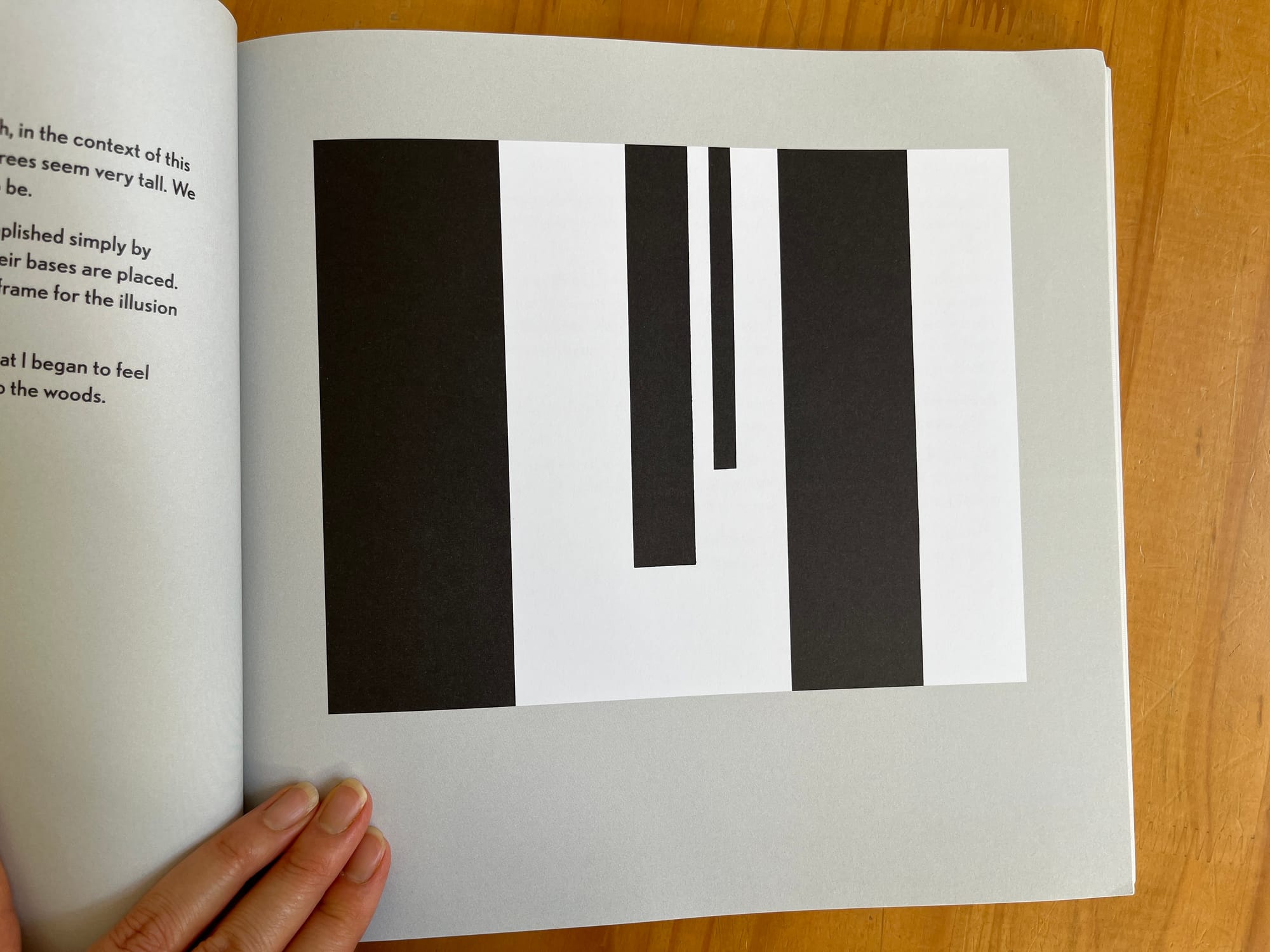
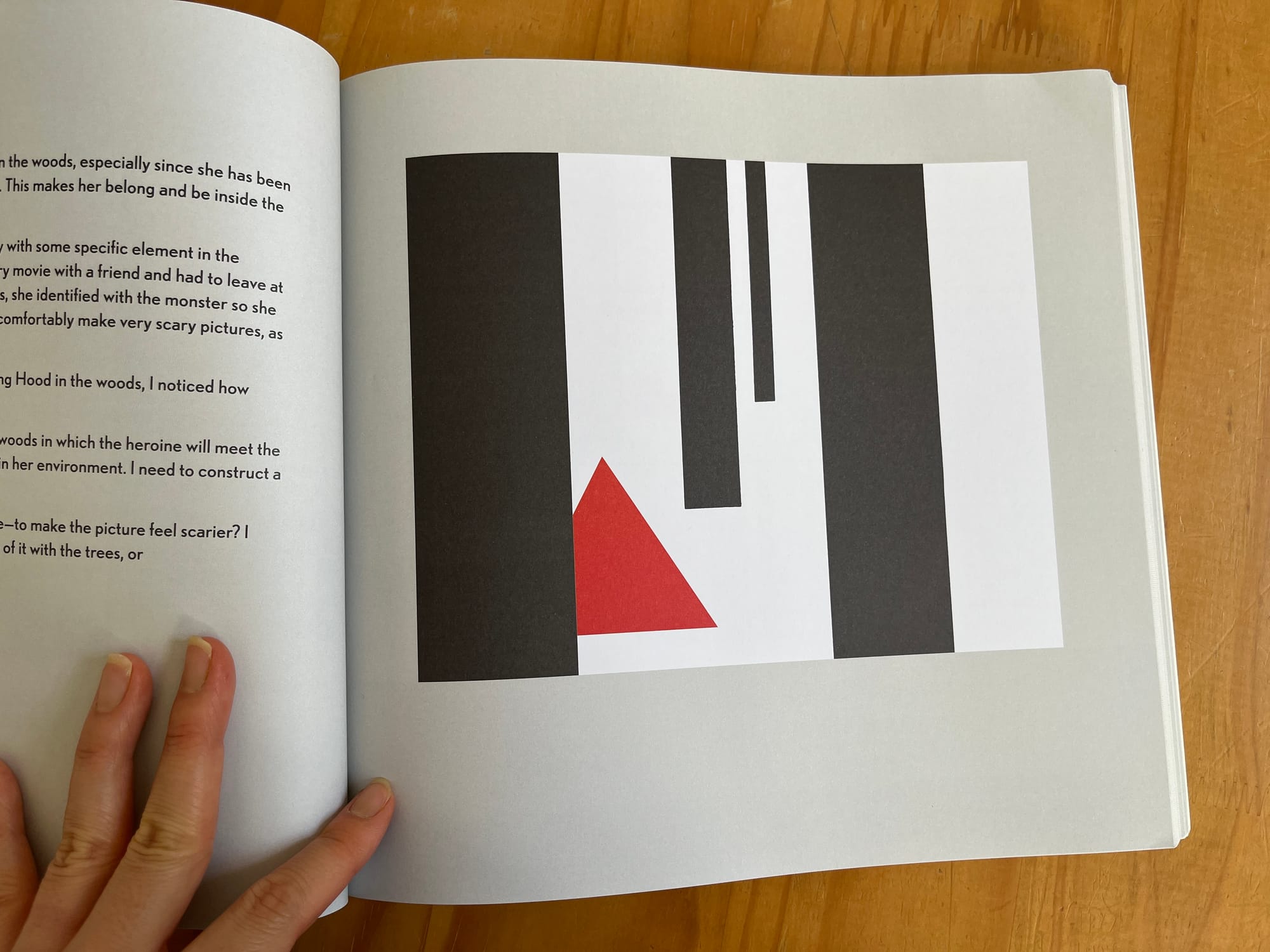
To illustrate the forest Little Red Riding Hood wanders into, the author first used triangles to represent trees. Then she stacked the triangles to make them taller—and eventually removed the tops altogether, showing only the trunks to suggest trees so towering they couldn't fit on the page. Placing Little Red's small triangle behind one of those massive trunks created a contrast that perfectly conveyed her vulnerability in the vast woods.
It explores where to place objects on the page, how to choose colors, and how different elements relate to one another—like the emotional impact of object A vs. object B, or the tension between shapes and negative space. Bang starts by analyzing scenes from Little Red Riding Hood using paper cutouts, explaining each visual decision in real time. Later in the book, she moves into practical ways to effectively execute an artist’s emotional intent.
At the end, there are exercises included—which I’m planning to try next month! Especially since I still feel a bit frustrated about the AI illustration I finished yesterday. If I can sharpen my skills through these exercises, I’d love to revisit that piece and make it stronger with a clearer emotional message.

